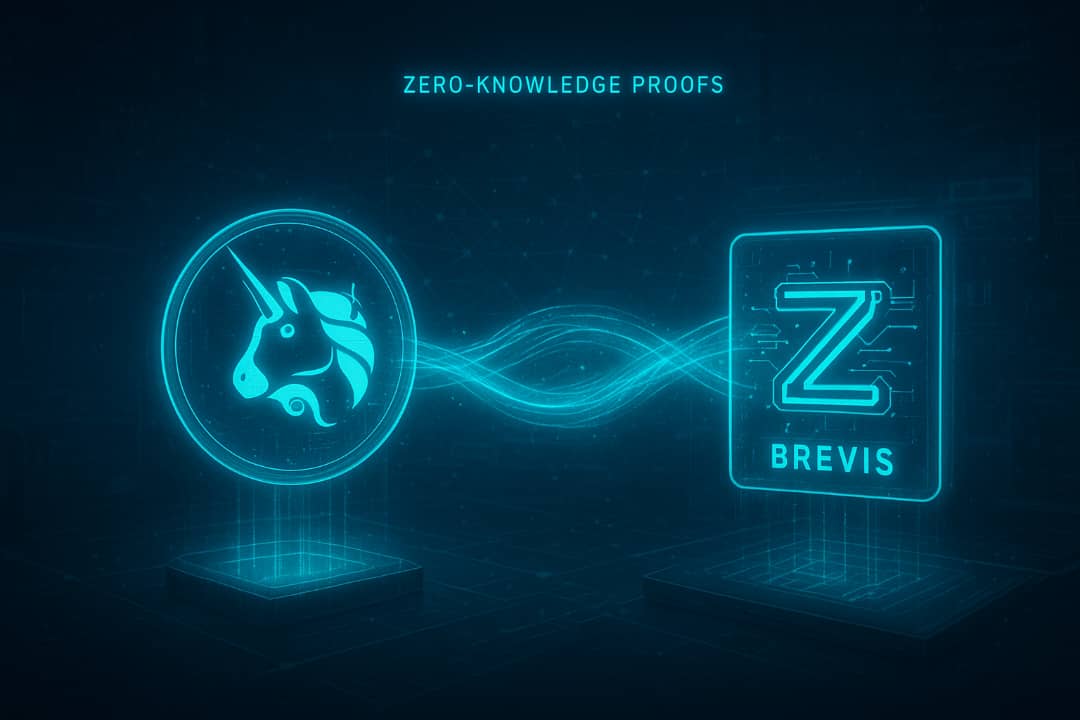The Uniswap Foundation has awarded a grant of up to $9 million to Brevis, a leading zero-knowledge (ZK) infrastructure developer, to design and manage a Router Rebate Program. This initiative is the first of its kind, built entirely on zero-knowledge proofs, and aims to incentivize decentralized exchange (DEX) aggregators like 1inch and Matcha by providing gas rebates when routing user transactions through Uniswap v4 hooked pools.
## Driving Faster Uniswap v4 Adoption and Deeper Liquidity
The goal of this Router Rebate Program is straightforward: to accelerate the adoption of Uniswap v4, deepen liquidity in its pools, and reward routers that help power Uniswap’s next chapter. By offering a financial incentive, the program encourages aggregators to increase routing volume through Uniswap v4, ultimately benefiting the broader ecosystem.
## From Infrastructure Provider to Ecosystem Builder
This grant marks a significant milestone for Brevis. Previously known primarily as a ZK data coprocessor powering off-chain computation, Brevis is now stepping directly into the Uniswap ecosystem as a builder. The company will deploy, manage, and maintain the rebate system that connects zero-knowledge proof technology with on-chain economic incentives.
This collaboration brings real utility to zero-knowledge proofs in the DeFi space—not just for enhanced privacy but also for automated and cryptographically verified economic transactions.
## What the $9 Million Grant Covers
The Uniswap Foundation’s $9 million grant will fund the full development, deployment, and long-term management of the Router Rebate Program. Here’s what it entails:
– Up to $9 million in cashbacks will be distributed to DEX routers that integrate Uniswap v4 hooked pools.
– Rebates will be calculated and verified trustlessly using Brevis’s ZK Data Coprocessor and Pico zkVM.
– The program establishes a direct incentive loop: increased routing activity through Uniswap v4 results in more liquidity and fees flowing back into the ecosystem.
As the largest DEX by trading volume, Uniswap currently maintains over $5.6 billion in 24-hour activity. The introduction of a router rebate system could further solidify its dominance by enhancing aggregator integrations and improving execution speed.
## How the Rebate System Works
Gas costs remain a significant challenge for DeFi users, as every transaction consumes gas, and tracking these costs accurately can be complex. Brevis’s solution simplifies this process with zero-knowledge proofs:
1. Routers direct orders through Uniswap v4 hooked pools.
2. Brevis calculates the gas costs off-chain using its data coprocessor.
3. A zero-knowledge proof (ZK proof) is generated to verify the accuracy of the gas cost calculation.
4. The router submits this ZK proof on-chain to claim the gas rebate.
This creates a fully automated, trustless refund system with no need for centralized tracking, manual audits, or trust assumptions. Every rebate is cryptographically verified before payment, ensuring transparency and security.
## Why This Matters for Uniswap v4
Uniswap v4’s innovative architecture—centered around hooks and custom liquidity pools—enables new automated features but also introduces complexity for aggregators. The rebate program incentivizes routers to integrate with v4 early, leading to:
– ⚡ Faster Uniswap v4 adoption by major DEX aggregators.
– 🌊 Deeper liquidity in hooked pools as transaction volume scales.
– 🔄 Improved swap execution for end users through better routing efficiency.
Crucially, this program maintains DeFi’s trustless principles while fostering ecosystem growth.
## The Brevis ZK Advantage
Brevis has earned a strong reputation for developing scalable zero-knowledge proof systems capable of processing and verifying data from any on-chain or off-chain source. Its ZK Data Coprocessor securely performs heavy computational tasks—like gas tracking and routing cost analysis—off-chain and produces proofs for on-chain validation.
The use of Pico zkVM ensures this process is lightweight and verifiable without reliance on centralized servers or manual intervention. In essence, Brevis brings machine-verifiable economic computations to Uniswap v4, enhancing trust and automation within the protocol.
## Season 2 Activation: A Major Milestone
According to Brevis, the rebate integration is scheduled to launch in Season 2 after internal testing and protocol audits. This phase will focus on validating the entire system—from routers submitting proofs to automatic on-chain rebate distributions.
This development marks a significant advancement in how decentralized exchanges can reward routing activity. If successful, Uniswap’s rebate model could become a new DeFi standard for trustless incentive systems.
Brevis commented, “Tasks will focus on testing or using the trustless gas rebate system. This is a significant step for both Brevis and the Uniswap ecosystem.”
## A New Era for Decentralized Trading
The partnership between Uniswap and Brevis represents more than just a funding agreement—it signals a strategic direction toward increased automation and verifiability in decentralized trading. This system:
– Automates gas rebates.
– Verifies rebates trustlessly with zero-knowledge proofs.
– Removes the need for intermediaries.
– Maintains economic fairness and transparency.
As one analyst noted on X, “This isn’t just about rebates, it’s about turning proofs into incentives.”
## Ecosystem Impact
The program is expected to spark heightened competition among leading DEX aggregators such as 1inch, Matcha, and ParaSwap, each vying for a share of the $9 million reward pool. Aggregators that adapt quickly to the rebate mechanism could gain immediate profitability advantages, channeling more user activity through Uniswap v4 over competitors.
Over time, this competition should deepen liquidity, reduce slippage, and increase the total value locked (TVL) across v4 pools.
## Conclusion
The Uniswap Foundation’s $9 million grant to Brevis is more than a simple funding announcement—it’s a blueprint for how DeFi incentives can evolve by leveraging zero-knowledge technology. By aligning protocol economics with cryptographic trust, Uniswap is paving the way for a future where proof replaces trust at every layer of its stack.
If this rebate model succeeds, it won’t just make trading more affordable and efficient—it will redefine how infrastructure and incentives interact in decentralized finance.
For Brevis, this partnership marks a major evolution—from a ZK infrastructure provider to a core builder within the largest DEX ecosystem in crypto.
—
*Disclosure: This is not trading or investment advice. Always conduct your own research before buying any cryptocurrency or investing in any services.*
https://themerkle.com/uniswap-foundation-awards-9m-grant-to-brevis-for-trustless-router-rebate-system/

Be First to Comment